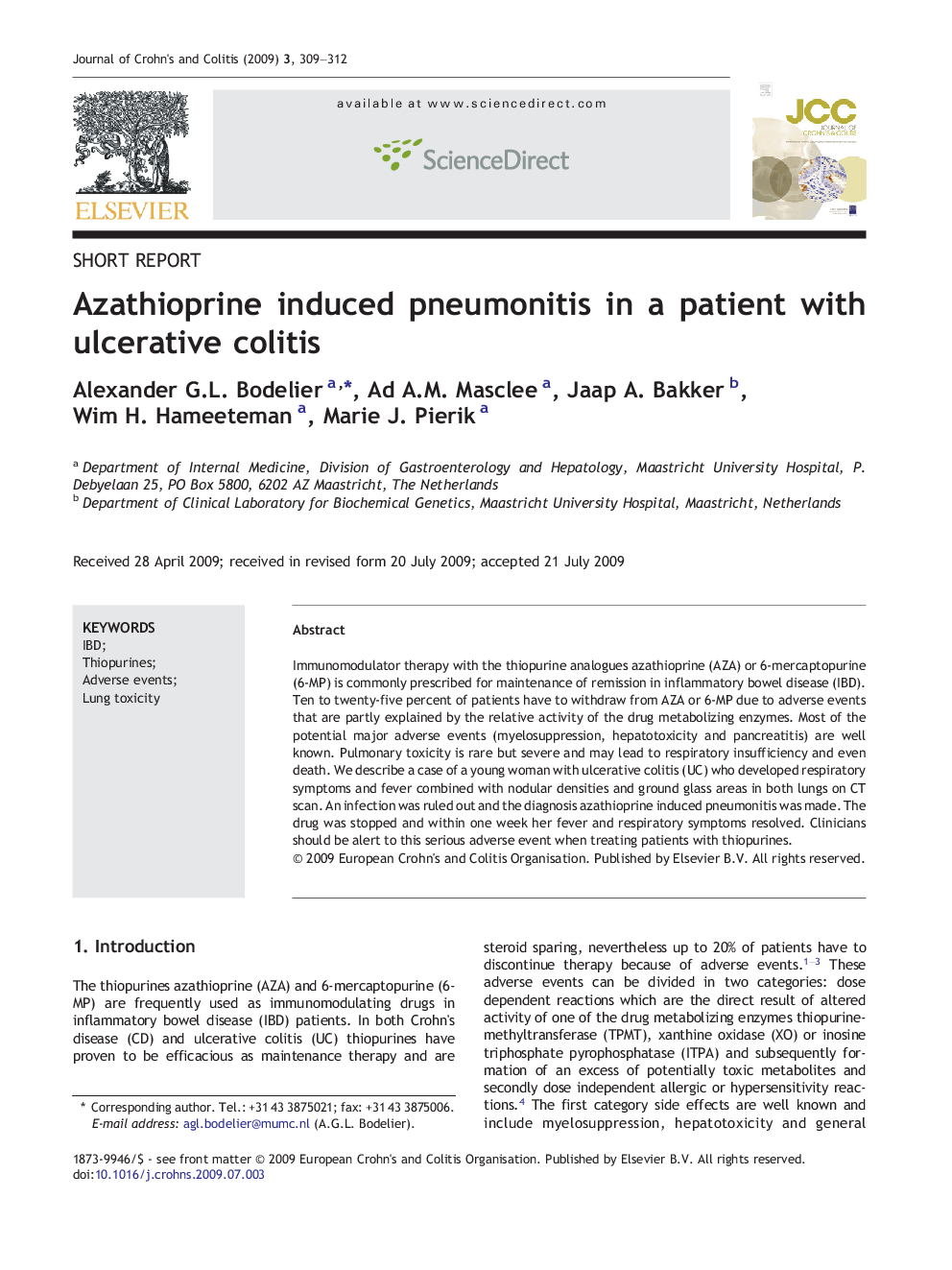| Article ID | Journal | Published Year | Pages | File Type |
|---|---|---|---|---|
| 6100778 | Journal of Crohn's and Colitis | 2009 | 4 Pages |
Abstract
Immunomodulator therapy with the thiopurine analogues azathioprine (AZA) or 6-mercaptopurine (6-MP) is commonly prescribed for maintenance of remission in inflammatory bowel disease (IBD). Ten to twenty-five percent of patients have to withdraw from AZA or 6-MP due to adverse events that are partly explained by the relative activity of the drug metabolizing enzymes. Most of the potential major adverse events (myelosuppression, hepatotoxicity and pancreatitis) are well known. Pulmonary toxicity is rare but severe and may lead to respiratory insufficiency and even death. We describe a case of a young woman with ulcerative colitis (UC) who developed respiratory symptoms and fever combined with nodular densities and ground glass areas in both lungs on CT scan. An infection was ruled out and the diagnosis azathioprine induced pneumonitis was made. The drug was stopped and within one week her fever and respiratory symptoms resolved. Clinicians should be alert to this serious adverse event when treating patients with thiopurines.
Related Topics
Health Sciences
Medicine and Dentistry
Gastroenterology
Authors
Alexander G.L. Bodelier, Ad A.M. Masclee, Jaap A. Bakker, Wim H. Hameeteman, Marie J. Pierik,
